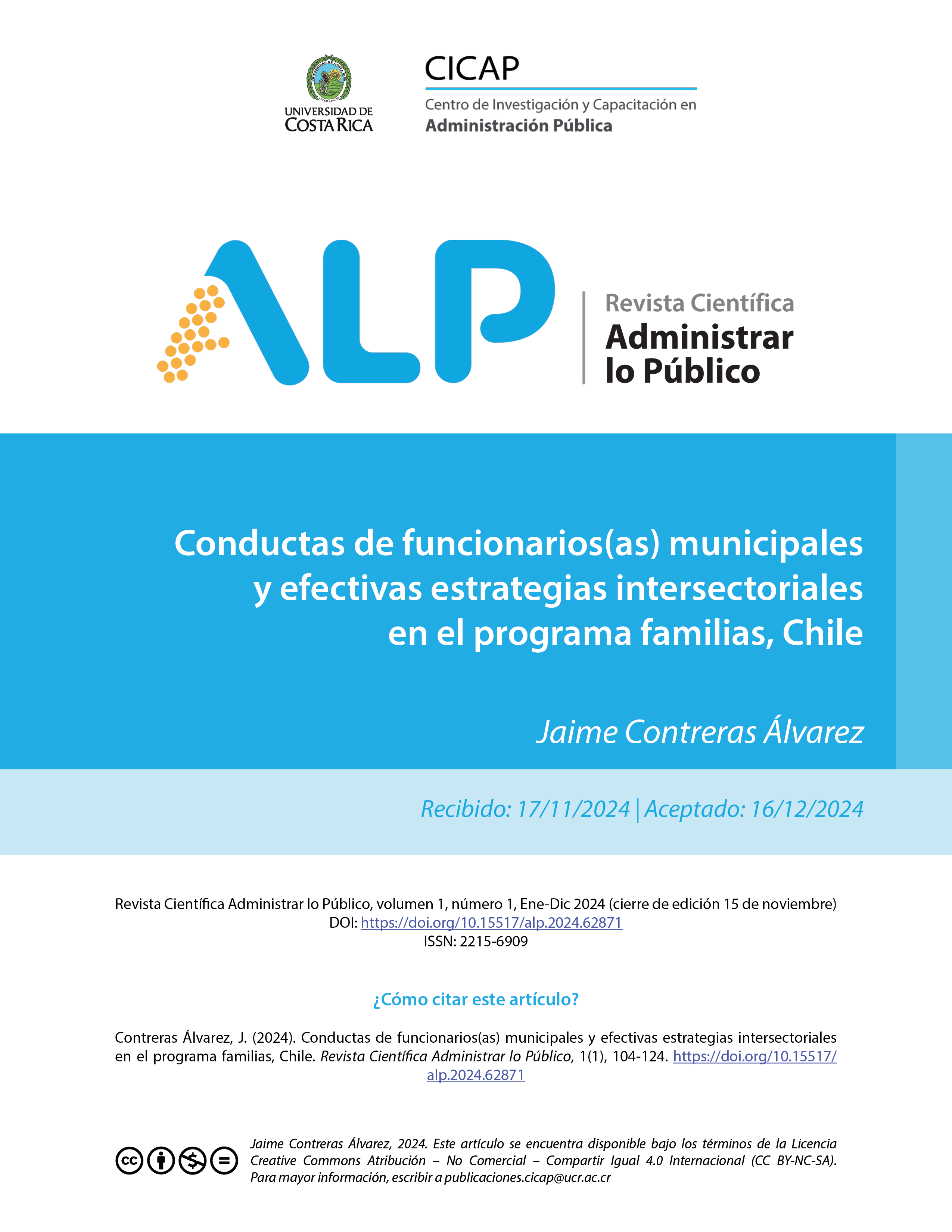Behaviors of municipal employees and effective intersectoral strategies in the Families Program, Chile
DOI:
https://doi.org/10.15517/alp.2024.62871Keywords:
municipalities, collaboration, intersectoriality, local management, social policy, local governmentAbstract
Intersectoral management is a process of exchange between actors from different public organizations, and its success depends on formal and informal rules and norms made by the members of cooperation networks. The objective of the research was to determine the behaviors of officials who implement effective intersectoral strategies in the families program of the Social Protection System between 2016 and 2022. The present article gathers the research results obtained through interviews with key actors, exploring the main behaviors developed by municipal officials who implement effective intersectoral strategies in the families program at the national level. It seeks to evidence the behavioral patterns that explain the collaborative work required by intersectorality at the local level. The results highlight trust, probity, commitment and service vocation, collaboration, effective communication and flexibility as key behaviors developed by the professionals responsible for the program.
Downloads

Published
Issue
Section
License
Copyright (c) 2024 Jaime Contreras

This work is licensed under a Creative Commons Attribution-NonCommercial-ShareAlike 4.0 International License.
Articles are published under the license of Creative Commons 4.0 (Attribution-NonCommercial-ShareAlike 4.0)

